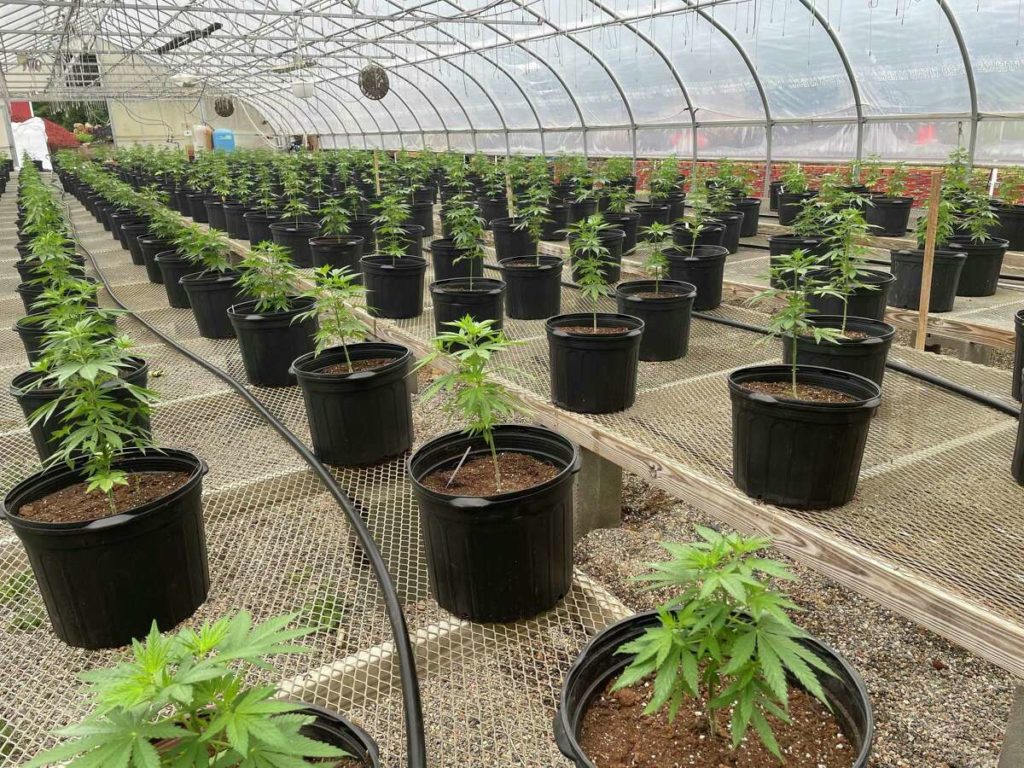By Verónica Del Valle on www.newstimes.com
Before budding entrepreneurs can start selling cannabis across Connecticut, hundreds of square feet of the plant must thrive in cultivation facilities. The earliest news about those entrepreneurs has generated mixed reactions.
Despite a rigorous system that vetted early businesses vying to grow cannabis in the state, some members of the state cannabis community have raised concerns about those enterprises’ ties to business and politics. However, others argue those concerns ignore the realities of the cannabis industry, which is on the verge of experiencing significant growth.
“Folks with capital are interested in this industry — it’s a billion dollar industry that is on the brink of going federally legal,” said DeVaughn Ward, senior legislative counsel for Marijuana Policy Project, a Washington D.C.-based nonprofit.
This month, the state Department of Consumer Protection announced the names of the 16 applicants pre-approved by the state cannabis equity council for so-called social equity cultivation licenses. Those applicants could be among the first cannabis growers in the state if they secure final approvals from DCP.
The state established strict criteria for these so-called social equity cultivators, which entrepreneurs from “disproportionately impacted areas” of Connecticut must own. State law mandates that these areas have “a historical conviction rate for drug-related offenses greater than one-tenth, or an unemployment rate greater than ten percent.”
The social equity process is just one pipeline toward cannabis licensing, according to DCP. Potential cultivators had a one-time application period of three months to seek these special licenses.
The law also imposes an annual income cap on social equity applicants. They cannot make more than three times Connecticut’s median household income. In addition, the social equity applicant must own at least 65 percent of the cultivation business.
A handful of high-profile names are attached to some of the social equity cultivators: some as applicants, others as investors. Hartford City Councilwoman Tiana Hercules is the social equity applicant in one of the ventures through a partnership with cannabis company Ayr Wellness. Former State Sen. Art Linares — the husband of Stamford Mayor Caroline Simmons — is a financial backer for another of the businesses.
“The fact that these licenses are connected to folks who have means — it should be no surprise,” Ward said. “These are huge, capital-intensive endeavors.”
Navigating the application process
The state maintains those high profile names changed nothing about the process. The Social Equity Council, the organization that oversees Connecticut’s cannabis equity initiatives, told Hearst Connecticut Media that it had a thorough — and at times, blind — process for reviewing these applicants.
“The council took their responsibility very, very seriously,” council executive director Ginne-Rae Clay said. “Folks think that a lot of this was being done in back offices.”
DCP says 41 businesses applied for social equity cannabis cultivation licenses. The consultancy CohnReznick reviewed documents from all those applicants, and when the Social Equity Council was presented with them, it was without any identifying information.
The consultants from CohnReznick are from out of state and “don’t know any of the applicants,” said Clay.
The Social Equity Council was also highly concerned with ensuring “true ownership” among the social equity applicants, DCP Deputy Commissioner Andréa Comer explained. Comer also chairs the Social Equity Council.
“True ownership means that the social equity applicant will control the board votes and the management decisions,” she said. The council prioritized making sure that people from disproportionately impacted areas were the owners of these businesses long-term.
But those safeguards haven’t stopped some cannabis advocates from raising eyebrows at the social equity cultivator announcement.
“I think … certain people are more prepared to be able to fill out the extensive application work,” New England Craft Cannabis Alliance Director Joseph Raymond Accettullo said. Accettullo is an advocate for existing cannabis cultivators, who he thinks were boxed out of the social equity application process by high licensing costs. The social equity licensing fee in Connecticut costs $3 million, something that industry experts have scrutinized throughout 2022.
Accettullo is among them, and his critiques of the social equity application process are not new. Even given the stringent limits on who can qualify as a social equity applicant, he believes that the state must lower licensing fees to better target people hurt by the War on Drugs.
Looking long term
Just because high-profile names are involved doesn’t mean that the system isn’t accomplishing its goals, said Ward, who is based in Connecticut.
“I do know Black men and Black women who were awarded these licenses and are exactly who the legislature was trying to attempt to get one of these opportunities to,” he said. Additionally, the current public information also does not fully capture who the social equity applicants are, according to Ward.
For example, a social equity cultivator could have multiple social equity applicants within the overall structure. Even though documents from the Secretary of the State’s office in broad strokes show who is involved in a company, more granular data will become available once all the applicants cinch final approval, according to DCP.
But beyond these early announcements and the conversation surrounding them, Ward said that the success of Connecticut’s social equity pipelines cannot be judged based on rough sketches of what the business will look like before they start growing cannabis and succeeding (or failing) in the industry.
“(The state) still has other licenses to roll out, you know?” Ward said. “This is really premature.”
H/T: www.newstimes.com
Click here view the original article By Verónica Del Valle on www.newstimes.com



